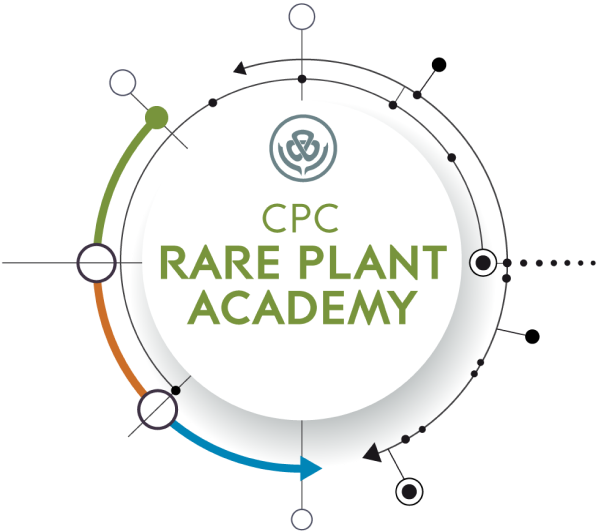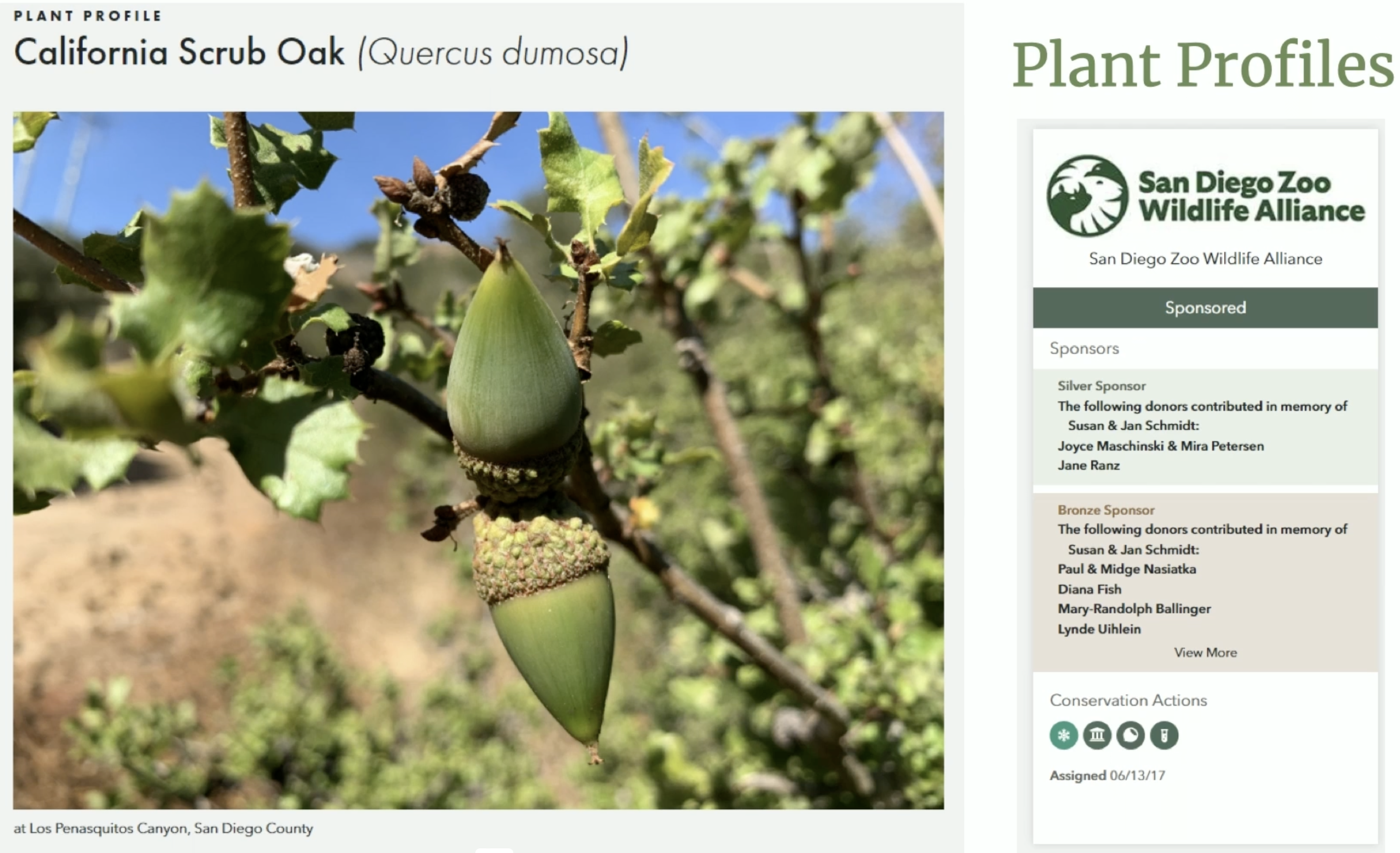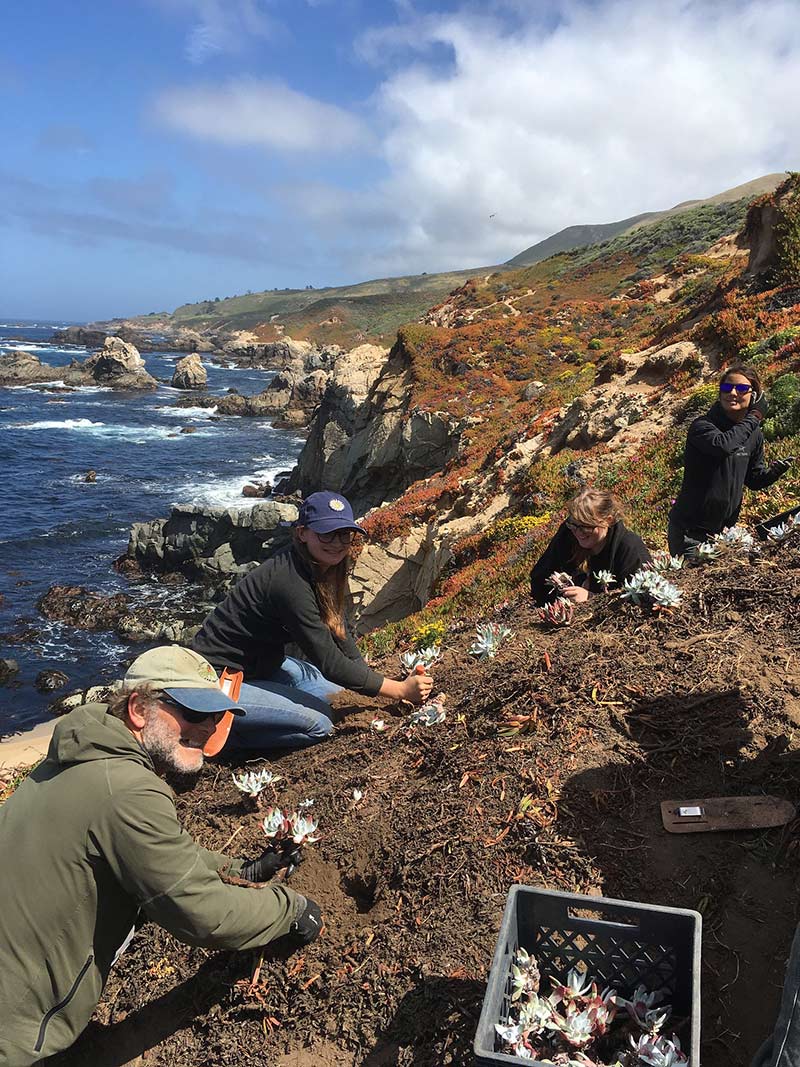State of the Center for Plant Conservation
During the National Meeting, the CPC National Office team gave a series of presentations highlighting CPC-led initiatives that support our network’s shared mission to Save Plants from extinction—ranging from federal grant-funded projects and improved CPC database resources to the launch of a new professional training module on rare plant conservation and much more. We were also pleased to introduce CPC’s new President and CEO, Dr. Carlos L. de la Rosa, during his inaugural National Meeting. CPC is proud to support our conservation community through these programs and resources—learn more below!
A Vision for Rare Plants and Ecosystem Conservation
In his first National Meeting address, CPC’s new President & CEO, Dr. Carlos L. de la Rosa, shared his exciting vision for CPC, its role in plant conservation, and more broadly, how our work impacts ecosystem health and conservation. With a background in aquatic ecology, Carlos shared highlights from his work and research on the relationship between plants and their insect associates—such as the purple pitcher plant and the mini-aquatic ecosystem they support with non-biting midges in Pennsylvania and aquatic tree hole habitats in Costa Rica that support helicopter damselflies. This work inspired a keen appreciation for plants, which Carlos now brings to CPC along with his deep understanding of the vital connections plants have with other organisms in their ecosystems—and how protecting plants from extinction is critical in preserving thriving ecosystems and a healthy planet.
Carlos also shared his vision for CPC and plant conservation both in North America and globally; CPC’s strategic initiatives and areas of focus and how our organization and network partners are addressing major conservation threats such as climate change, urban development and habitat loss, and more; opportunities to expand our conservation goals through CPC’s current regional initiatives, California Plant Rescue and Florida Plant Rescue; the need for effective storytelling and messaging to share our work and garner support from the general public, policy makers, and donors; and his ‘safety net’ concept for CPC’s role in plant conservation—from building the safety net through seed collections and field work, strengthening the safety net through collection management and ex situ conservation, and using the safety net by utilizing ex situ collections for reintroductions and restoration. With Carlos at the helm, CPC is eager to continue our work to save plants from extinction and make this vision a reality.

Rare Plant Academy Grant Recap
With the completion of the CPC’s IMLS National Leadership grant (MG-70-18-0063-18) in October 2022, the CPC Rare Plant Academy (RPA) has been established as a go-to multi-media resource for rare plant conservation education and expertise. This four-year $500,000 grant (2018-2022) facilitated key improvements to the RPA platform—and broader CPC website—to better serve our community of conservation partners. Work focused on three main website components—Best Practices Guidelines, Video Library, and Community Forum—which have been fully integrated into the website’s existing structure. The improvements to CPC’s website over the course of the grant have drastically increased year-over-year website traffic, with the number of unique visitors increasing from 24,000 to 64,641. Additionally, in a community survey sent to CPC partners, 68% of respondents reported they had used RPA resources between 3 to 16+ times in the last 12 months, and 85% of respondents were “likely” or “very likely” to recommend RPA resources to others, with some sharing that they “use these resources all the time and share them with other institutions” and that “[they] send people to RPA fairly frequently when they reach out…for guidance on certain plant conservation topics.” As more and more people access, utilize, and share these publicly accessible conservation resources, CPC is fulfilling its mission to advance science-based conservation practices and connect and empower plant conservationists.
Launch of the Applied Plant Conservation Course Module 1
Since 2021, CPC has been leading the development of the Applied Plant Conservation Course— a brand-new professional development resource that will serve to train our current and future botanical workforce in the best practices of rare plant stewardship and conservation. The course will bring the CPC Best Practices Guidelines to life as an educational tool for those working with rare and native plants at any stage in their career. Though the bulk of the course is still in development, CPC staff were pleased to announce at the National Meeting the launch of the first module of the course entitled, Introduction to Rare Plant Conservation. In this module, participants will explore topics including ‘Why We Conserve Rare Plants,’ ‘The Nature of Plant Rarity,’ ‘Rare Plant Resources and Conservation Ranks,’ ‘Rare Plant Ecology,’ and ‘Rare Plants on Public Lands.’ The Applied Plant Conservation Course is a free resource accessible to audiences around the world through the Rare Plant Academy platform. Partial funding for the course is generously provided by the Bureau of Land Management offices of California, Colorado, and Nevada, and CPC is thrilled to be working with partners from 18 institutions throughout our network to create course content.

Growing the CPC National Collection Through RPA and Regional Initiatives
CPC has been hard at work growing the National Collection in two significant ways: knowledge and numbers. We are expanding our depth of knowledge of rare plant species in the National Collection by synthesizing our network’s collective knowledge and developing robust, informational Plant Profiles on CPC’s website for each plant species. These Plant profiles (see Quercus dumosa for an example) contextualize research and conservation actions while integrating RPA video and photo resources, newsletter articles, pollinator and reintroduction database information, and more. By demonstrating the anatomy of a Plant Profile during the National Meeting, CPC wishes to empower our network partners to make regular updates to these profiles to share up-to-date knowledge about the rare plants they steward. Furthermore, we’re growing the total number of plant species accessioned in the National Collection, primarily through the California Plant Rescue (CaPR) and Florida Plant Rescue (FLPR) regional seed collection initiatives.
To aid these efforts, CPC has introduced a CaPR database to synthesize information about target California species, from occurrences to accessions. It also features a targeting tool that allows partners to filter based on taxa, protection status, accession information, geographic region, land ownership status, and more for better targeting metrics. In 2022, 156 species were added to the National Collection throughout the network—112 of which were collected through CaPR and 13 from FLPR. These regional initiatives allow us to make meaningful progress toward our goal of securing all 4,400 rare and endangered North American plant species in the National Collection.
CPC Reintroduction Databases
In December 2022, CPC re-launched our CPC Reintroduction Database. This resource represents a harmonization of the CPC International Reintroduction Registry and the more recent REDCap Dataset compiled by Matthew Albrecht and Oyomoare Osazuwa. This database contains over 400 projects involving 187 species across 25 states. Aside from the reinstallation of the new database on CPC’s website, work on this database project over the past year led by Dr. Joe Bellis, a recent graduate of Liverpool John Moores University, has produced a public-facing Reintroduction Registry and significant progress on three active peer reviewed manuscripts: 1) the completion of the REDCap synthesis focusing on determinants of reintroduction success, 2) a descriptive account of the database in a special issue of Applications in Plant Sciences (APPS), and 3) an analysis of the effect of spatial factors including climate suitability on reintroduction success.
The REDCap manuscript is in the final round of review by co-authors and will be submitted to Conservation Biology in summer 2023. Key findings from the initial synthesis efforts from this database were shared and a new grant opportunity was announced to help encourage CPC practitioners to test out this improved resource and update records for reintroduction projects submitted in the past.
